The Undertakers | The Mersey Band Who Should Be Famous
Approaching the 1960s, Liverpool England was suffering an economic downturn. Container shipping shrank the vast Mersey docklands to just two docks and thousands of people were out of work. However, a music scene was evolving there that would eventually conquer the world.
It started with something called skiffle. Before there was the Beatles, there was the Quarrymen, and before there was the Undertakers, there was the Casuals. They and almost every other band played skiffle.
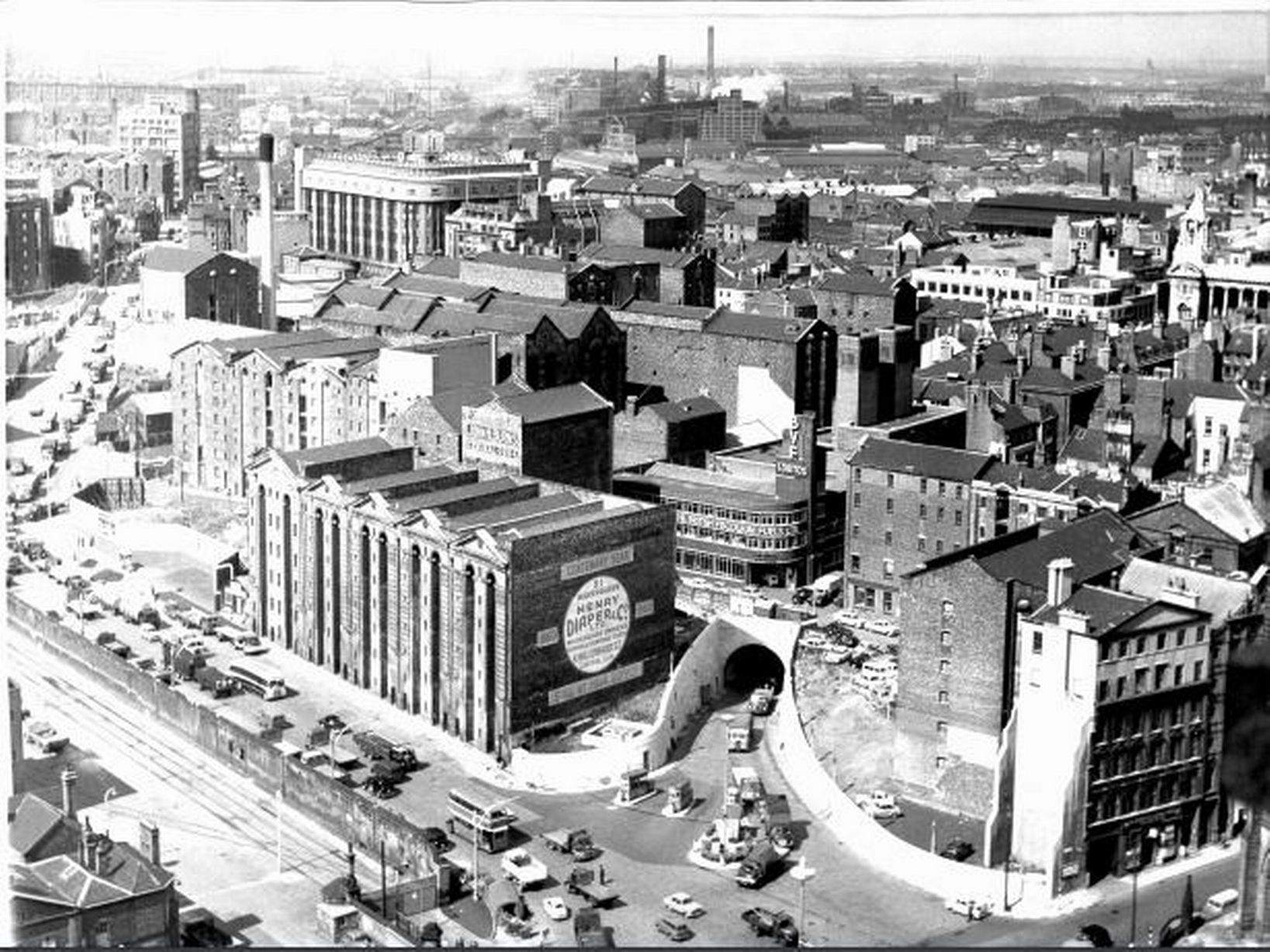
“Skiffle was our name, in the U.K., for a revival of early folk music, from artists such as Pete Seeger, Leadbelly and Woody Guthrie,” Chris Huston of The Undertakers explains. Growing up in Wallasey, across the Mersey from Liverpool, he listened to artists like Lonnie Donegan and Joe Brown and in 1958 formed a skiffle group called the Casuals. “The music was easy to play, three chords and no fancy solos, so hundreds if not thousands of skiffle groups started up and they eventually progressed to encompass the new rock ‘n’ roll that was coming over from the States.”
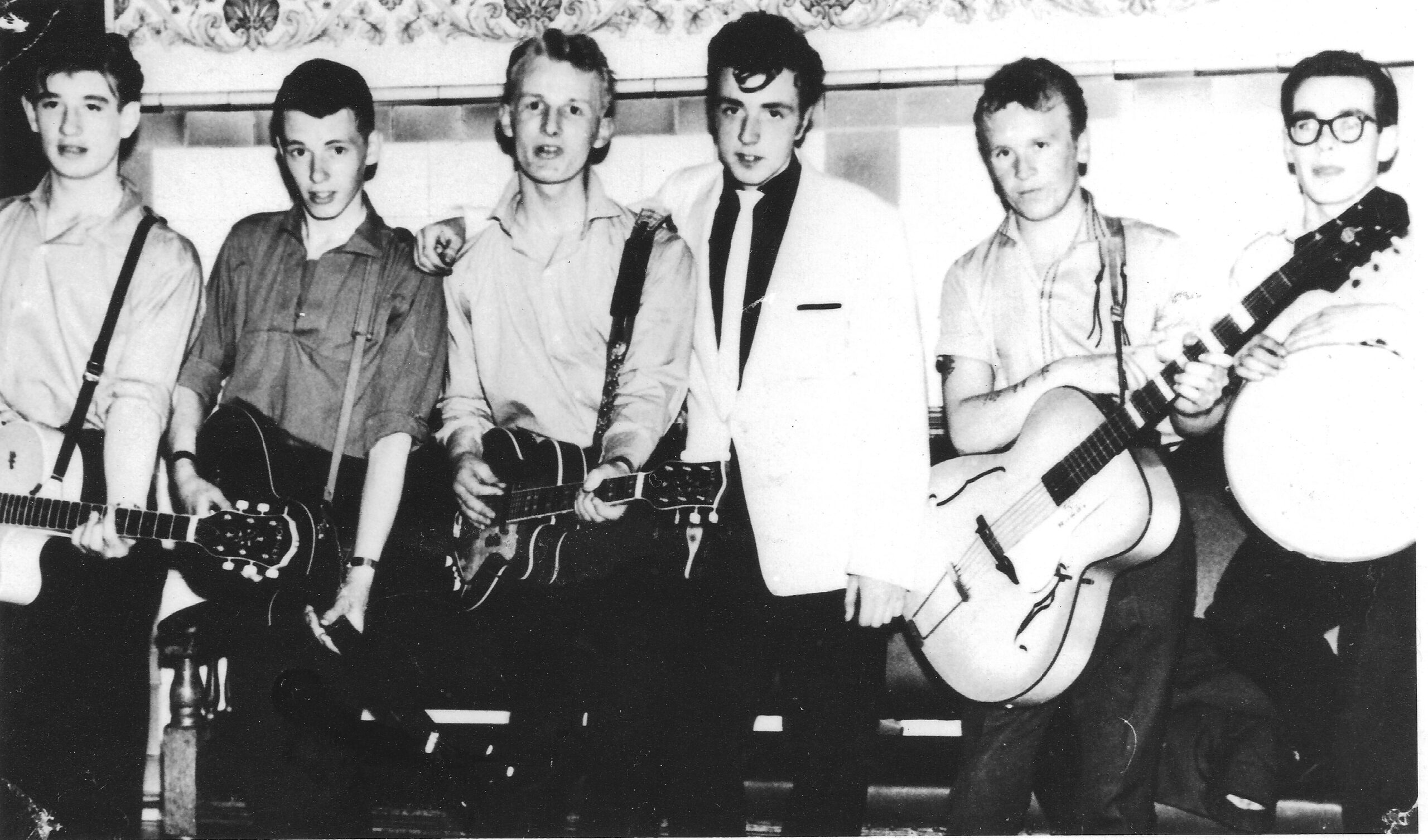
After the Casuals had run their course, Huston joined Bob’s Vegas Five. In 1961 the group was booked to play the Litherland Town Hall. After checking out the ad in the local paper, they found out that their name had “been replaced with the word ‘Undertakers’ transposed from the adjacent column on funeral directors. “Brian Kelly, the promoter of the gig, saw an opportunity to capitalize on the error. He suggested that we should buy black t-shirts, learn the ‘Death March’ and appear as The Undertakers for this one show. The curtain opened and, as we played the opening phrase of the ‘Death March,’ the kids went crazy. Bob’s Vegas Five had a new name.”
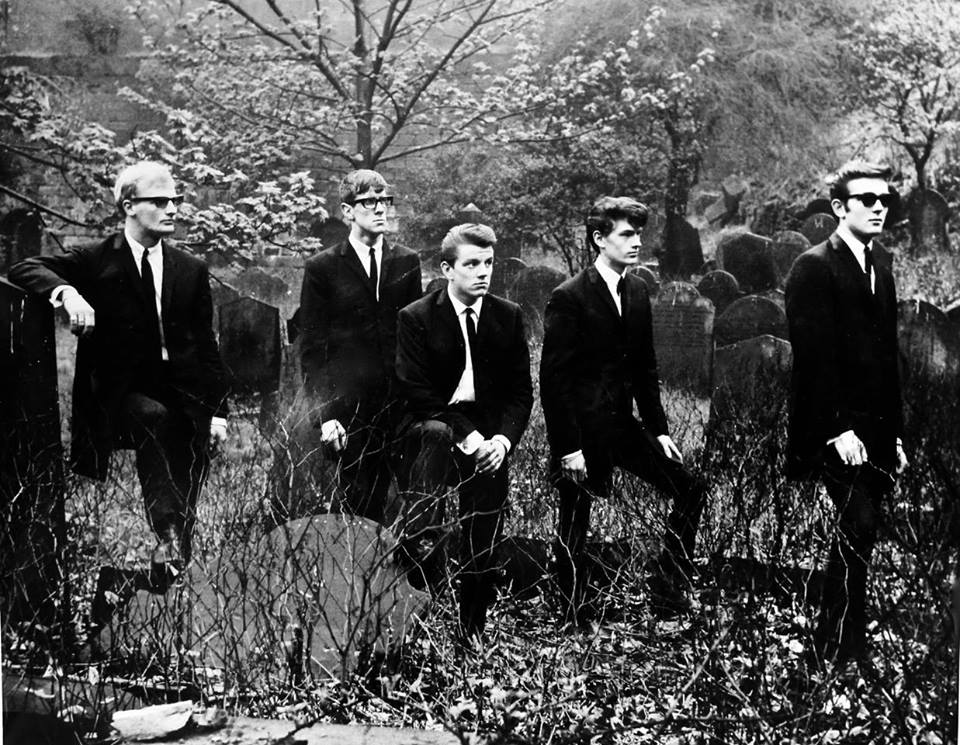
The Undertakers went through several personnel changes (like kicking out lead vocalist Jimmy McManus because he was always fighting with customers) and when they got their final line-up in place, their lead singer was Jackie Lomax. Allmusic.com said “The Undertakers developed a serious following in Wallasey and Liverpool, partly due to Lomax’s unusual good singing and the fact that, in addition to the standard mix of obscure American rock & roll and genre standards, they also attempted more big-band style R&B, helped by Brian Jones’ sax – few Mersey-side groups had a saxophone in their line-up.” They were the must-see live performance band in the region.
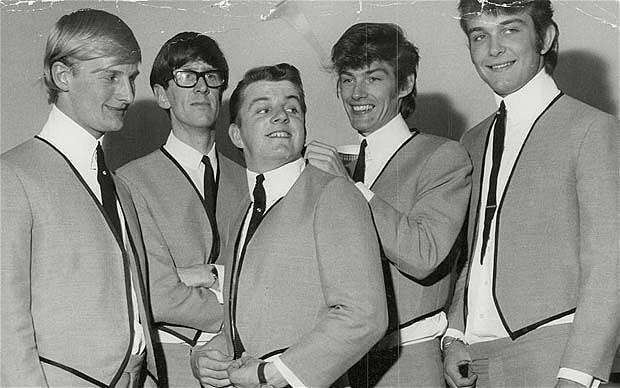
The Undertakers would eventually make a decision that changed their future career as a band forever. Chris talks about that point in time. “It was a typical lunchtime session at the Cavern, crowded, sweaty and smelly. Several of the Undertakers were there to see the Beatles play. During one of the breaks between sets we were talking at the back of the room with George and John. Brian Epstein suddenly appeared and upon seeing us said ‘I’d like to see a couple of you boys in my office, later on, this afternoon.’” John commented, “I know what he wants, he wants to manage you.” We answered in unison, “but we’ve got Ralph Webster.” Webster managed three venues in Liverpool and was in partnership with a fellow entrepreneur Brian Kelly on a couple of more. We were always playing. As for John talking about Epstein, he said “he ain’t done fuck-all for us yet.” That was true at the time, but everything was about to change. Chris says “of course, we didn’t sign with Brian Epstein and we didn’t get as big as the Beatles. What would have happened if we had signed with Eppy – who knows?”
When the Beatles came back from their first booking in Hamburg, Germany, Chris noticed they had a “fire about them. I talked to John Lennon and he said ‘They roll the pavement up here (Liverpool) at ten o’clock and you go over there and it’s just getting started at 12 o’clock’. We were eager to go over there and see what he meant.” The owner of the Star-Club in Hamburg, Horst Fascher, came over to Liverpool and turned up at the Litherland Town Hall to see them. After the show he asked the Undertakers if they could be in Hamburg in two weeks. “Of course!” was the answer in unison. This was in August of 1962. During their summer stay in Hamburg they got to watch and work with American powerhouses like Little Richard, Bill Haley, Jerry Lee Lewis and Ray Charles that helped improve their stage act. There were usually three bands playing regularly with “the star acts.” The Undertakers were told that when they got tired and needed to wake up they should go and see the lady in the men’s bathroom and she would give us some automatischerweckrufpillen (translates to ‘wake up pills’)”.
On the heels of the Beatles’ national breakthrough, A&R men from all the London recording companies descended on Liverpool. The Undertakers were signed to Pye Records with Tony Hatch as producer. “When the Undertakers first went into the Pye recording studios, we were greeted by engineers in white lab coats. We were told where to stand. The volume and tone were set for us. In the space of thirty minutes, these guys had succeeded in sapping all the excitement from our music.” Their debut recording was ‘Everybody Loves A Lover’ on the A side and ‘Mashed Potatoes’ on the B side. Their fourth and final recording for Pye, ‘If You Don’t Come Back,’ was entering the charts when the record pressing plant shut down for its annual holiday and the song failed to become a major hit. “The lack of support from our producer, coupled with Pye’s failure to adequately publicize or promote our releases was ultimately responsible for the Undertakers’ records not achieving the volume of sales our popularity as a live act should have warranted.”
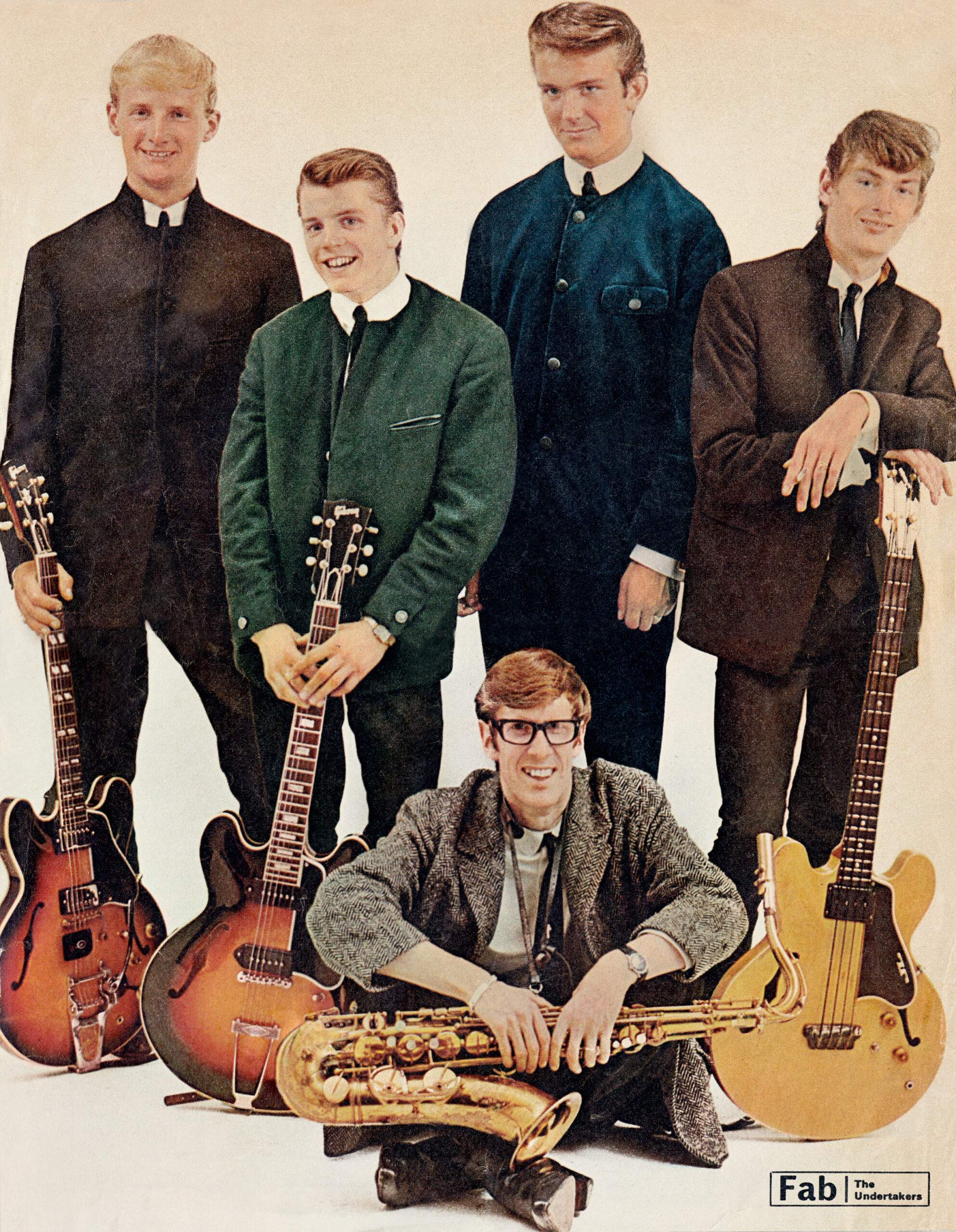
While in Germany, the manager of the Undertakers concocted a plan to gather publicity for the group. He got ahold of some East German currency, which was illegal in the West and had the Undertakers get caught with it. This was to promote their Pye Records release of ‘If You Don’t Come Back.’ At Checkpoint Charlie band members Chris and Brian put East German currency, along with all their other money (including Monopoly money) into their passports. When they handed over their passports the money fell out and they were caught. Chris and Brian were moved to a compound in East Berlin where they were told that currency smuggling was a very serious offense. When asked if they belonged to any political organizations, Chris answered “the Salvation Army” which failed to amuse the officers. The next morning they found out they had two choices: be sentenced to jail or be deported after forfeiting all currency. Of course, they forfeited and left the sector for good.
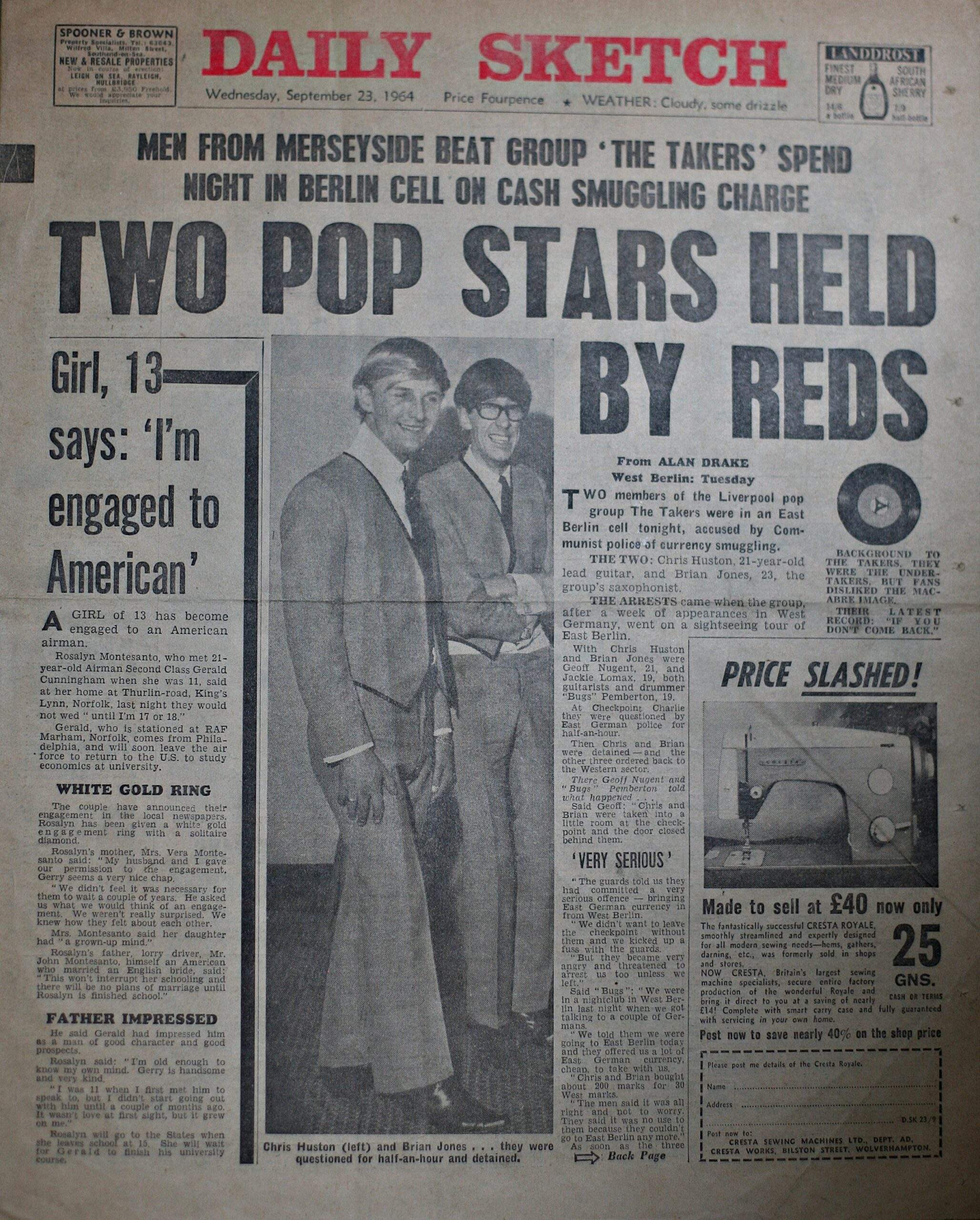
The ferry cross the Mersey The Undertakers entertained on was the Royal Iris which traveled between Liverpool and Wallasey which were on opposite sides of the river. It was bigger and more modern ferryboat and had an amazing number of bands aboard, several of whom would make hit records in the near future.
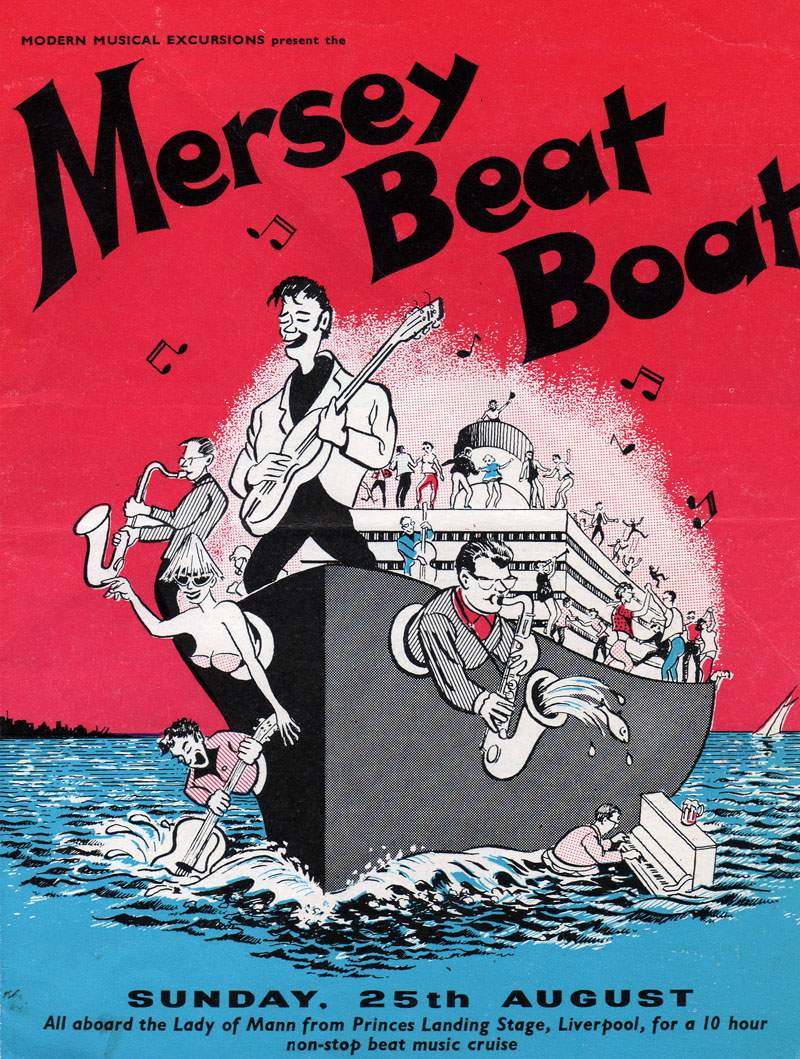
While in Hamburg, Chris saw an ad in a music magazine that his mother had sent him, reading “Wanted: Beat Groups To Make Hit Records.” He replied and the reply offered the Undertakers a chance to visit America. The Pete Best Combo also was booked and the deal was that both of them would each record an album’s worth of material at Talentmasters studio in Manhattan. Bob Gallo and Bob Harvey were the two people who brought the two groups over and The Undertakers soon found out that they were exploiting Pete Best getting booted out of the Beatles connection, hiring two New York lawyers to file suit against the Beatles to gather publicity. Meanwhile, the Undertakers were shipped off to Canada to do a tour because it would be a lot cheaper than having them stay in Manhattan. Once there, they found out that there were very few gigs waiting there because of a lack of effort made in advance to interest promoters in booking them. Getting their managers in New York to send money for food and lodging became increasingly difficult. They were in Ottawa, Winter was approaching and they had no Winter clothing of any kind. They decided to sneak out at 3 a.m. one morning, leaving a considerable bill at the motel.
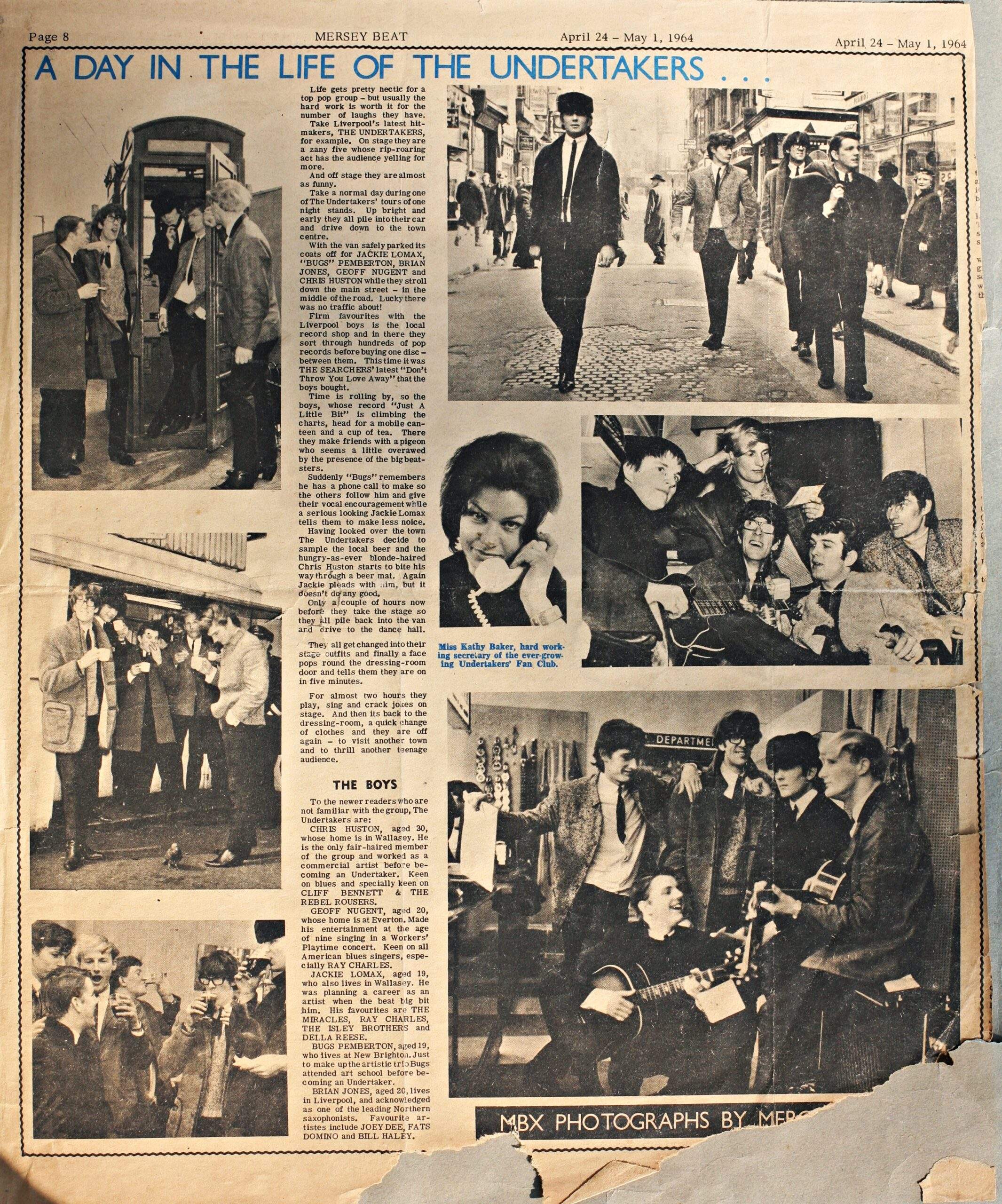
On the way back, the Undertakers broke up. Brian Jones went home. Bugs Pemberton and Jackie Lomax joined two American musicians to make a band. Chris Huston had bigger dreams . “I wanted to become a producer and make records. I decided to sleep on the couch in the backroom of Talentmasters and learn all I could about making records.” He went on to engineer recordings by Led Zeppelin, the Who, Eric Burdon and War and dozens of others, winning a Gold Record for ‘Groovin’’ by the Rascals. Looking backward Chris said “I am content with the path my life has taken. I am also content with the wonderful memories of those incredible Merseybeat days.”
Michael Raab
In 1995 Big Beat Records issued a CD of the Undertakers recordings entitled ‘Unearthed’ including their never-issued American album.
Award-winning video producer Michael Raab and editor Patrick Ogelvie have plans to release a documentary about the Undertakers in 2023.

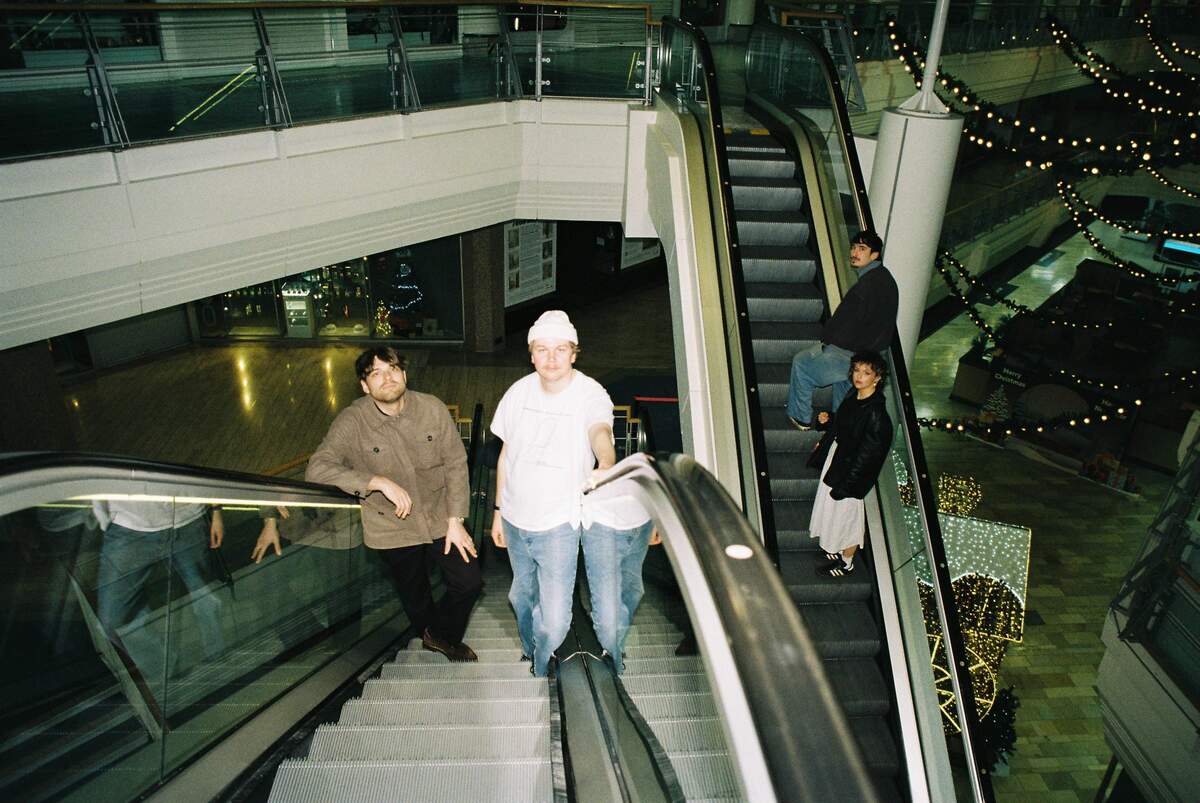


What a wonderful story that was. It is amazing the things that happened to us while on the road with The Undertakers. I loved every minute of it. I miss those days, It was one big laugh to the end.
What a wonderful story that was. It is amazing the things that happened to us while on the road with The Undertakers. I loved every minute of it. I miss those days, It was one big laugh to the end. Chris forgot to mention The Pet Bat we had in our hotel room , And the French manager teaching me to play Shuffle Board . And after three days I could beat him all the time ,And he used to swear at me in French. Brian Jones Saxophonist The Undertakers.
Horst Fasner was not the owner of the Star Club in Hamburg, but the doorman. He was a confidant for many musicians and personnel. Manfred Weissleder was the owner. On December 31, 1969, the club closed its doors and burned to the ground in 1987. There is still a memorial plaque at that place at Grosse Freiheit 39.